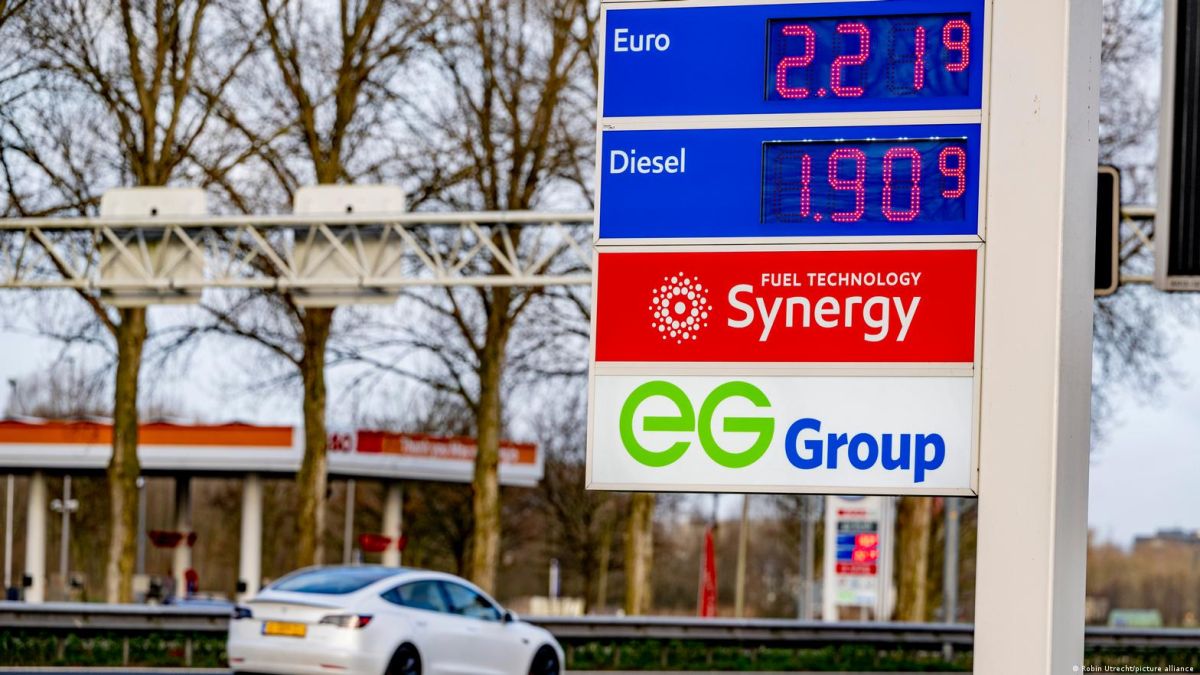The French Finance Minister, Bruno Le Maire, has said that the European Union and the United States have launched an “economic war” against Russia, referring to Western sanctions against Moscow, which have effectively isolated the country from the markets international financial markets.
The so-called economic war has left Russia facing financial collapse, with the ruble falling to record lows against the US dollar, prompting Russians to queue at ATMs hoping to withdraw cash, for fear of a bank stampede.
However, not only Russia will feel the Western sanctions, which were unleashed in response to Russian President Vladimir Putin’s war, against Ukraine. The sanctions are hurting other countries, from Egypt to Germany, that are heavily dependent on wheat and natural gas from the warring parties.
DW looks at what sanctions against Russia mean for people in other countries.
Older energy prices
Oil and natural gas prices soared over the weekend, with this new round of Western sanctions against Russia, as traders braced for supply disruptions from Russia, one of the world’s largest oil and gas exporters, and Ukraine, a major transit country for Russian gas.
So far, sanctions have not been aimed directly at the energy sector, but traders fear that Moscow could retaliate by restricting oil and gas exports, and that Western sanctions will eventually be widened to directly harm the energy sector. Russian co, the goose that lays the country’s golden eggs.
“Russia’s energy supplies are at great risk, either because they are held by Russia as a weapon or because they are left out of the market due to sanctions”, explained Louise Dickson, oil market analyst at Rystad Energy, in a note.
There are also concerns that excluding major Russian banks from the SWIFT payment system could make buying Russian oil and gas prohibitively cumbersome. European banks Societe Generale and Credit Suisse are reported to have stopped financing all Russian commodities.
That is worrying many in Europe, which gets more than a third of its supply from gas and about a quarter of its oil from Russia. Any interruption in supply could leave Europeans without enough gas to heat their homes and with skyrocketing electricity bills, as utilities would have to scramble for fuel to generate power.
“Until now, the sanctions seem to be excluding energy, so that the indirect effect is less serious than it could be. Make no mistake, the risks of a much worse outcome are there,” Deutsche Bank analyst Jim Reid told clients.
Rising food prices
The crisis has also increased fears about the supply of grains such as wheat and corn and oilseeds. Wheat futures in Chicago have continued to rise after hitting a 13 and a half year high last Friday 13 February 2022, while corn prices are also trading at high levels.
Russia and Ukraine together account for about 30 percent of world wheat exports, almost a fifth of corn trade and about 80 percent of sunflower oil exports. Both are key suppliers of wheat to the Middle East and Europe. Turkey and Egypt are the largest importers of Russian wheat.
Experts fear that Russian military operations will further increase food prices in countries such as Libya, Yemen and Lebanon, deepening the food crisis they are already experiencing.
The The conflict is already disrupting exports from Black Sea ports, which are used to ship grain to Asia, Africa and the European Union. This Monday, Egypt was forced to cancel a tender to acquire wheat, after receiving only a few offers and at very high prices.
Inflation will continue unleashed
For most people around the world, the economic impact of the war in Ukraine and the sanctions on Russia will be felt in the form of higher inflation, caused mainly by the increase in prices of energy, metals and food.
Aluminum prices have shot up to an all-time high, surpassing those reached in 2008, during the financial crisis world. Traders fear that sanctions against Russia and retaliatory moves by Moscow could disrupt global aluminum supplies. Russia produces about 6 percent of the world’s aluminium.
Supply of the energy-intensive metal will also be affected by higher energy prices and subsequent shortages, which could cause the closure of more plants.
“New disruptions in the global supply chain are a key risk and, at a minimum, the prices of these basic products are likely to remain high for some period, maintaining global inflation high for longer,” said Jason Tuvey of Capital Economics.
The invasion risks derailing the global economic recovery after the pandemic, complicating matters for policymakers, who are expected to adjust the money supply to contain inflation, which was hovering at highs for decades in countries like the US and Germany even since before the war.
The uncertainty surrounding the recovery The economic crisis could ultimately delay central banks’ plans to raise interest rates, meaning ultra-cheap mortgages and personal loans could stick around a bit longer.
(rml/ ers)
